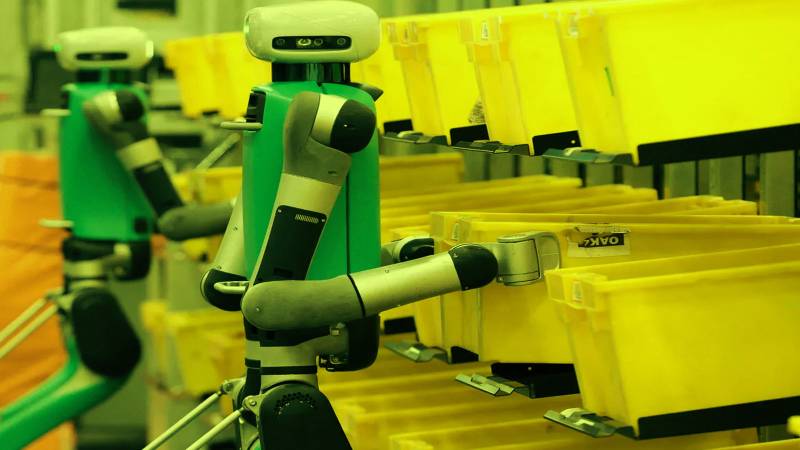
In the latest indication that the internet giant is automating more of its processes, Amazon is testing humanoid robots in its US warehouses.
"Freeing employees up to better deliver for our customers" was the stated motivation for the decision by Amazon.
It stated that it was putting a new robot named Digit through its paces. With arms and legs, Digit can move, grip, and handle objects much like a person.
Amazon "has been treating their workers like robots for years," according to a union.
"Amazon is racing headlong towards employment losses with its automation. Hundreds of jobs at fulfillment centers have already vanished as a result of it, according to Stuart Richards, an organizer for the UK trade union GMB.
In reality, Amazon claimed at the introduction that its robot systems had contributed to the creation of "hundreds of thousands of new jobs" inside its operations.
"This includes 700 categories of new job types in skilled roles that didn't exist within the company beforehand," the company stated.
The tech giant claims that over 750,000 robots are currently employed by it to do "highly repetitive tasks" "collaboratively" with its human employees.
During a media conference in Seattle, Tye Brady, the top technologist at Amazon Robotics, asserted that humans were "irreplaceable" and refuted the notion that the firm would eventually have totally automated warehouses.
"There's not any part of me that thinks that would ever be a reality," he stated.
"People are so central to the fulfillment process—the ability to think at a higher level, the ability to diagnose problems."
Digit walks on two legs instead of four wheels. Moreover, it features arms that are capable of picking up and moving things, containers, client orders, and parcels.
This enabled it to "deal with steps and stairs or places in our facility where we need to move up and down," according to Scott Dresser of Amazon Robotics, who spoke with the BBC.
The purpose of the study, he explained, was to see if the robot could operate securely alongside human workers, given that it was only a prototype.
"It's an experiment that we're running to learn a little bit more about how we can use mobile robots and manipulators in our environment here at Amazon," he explained.
